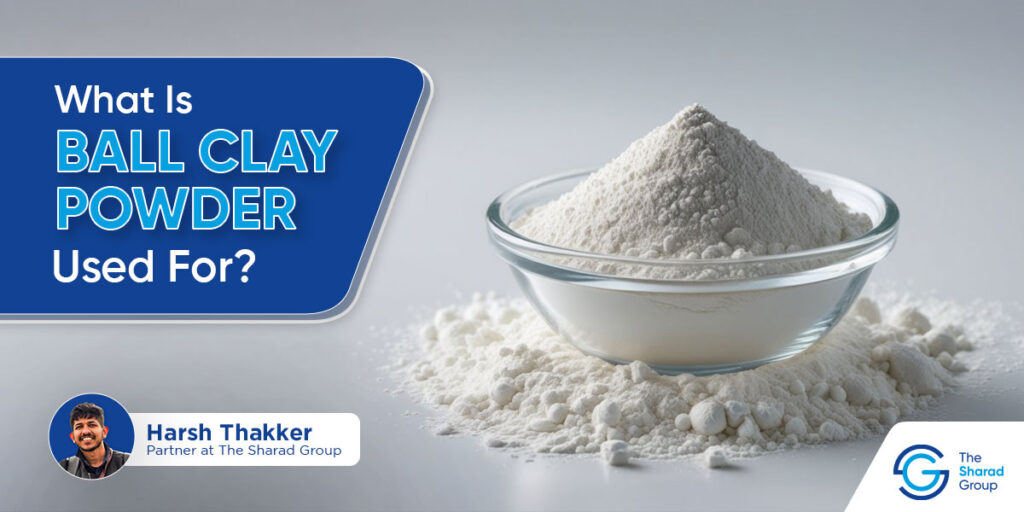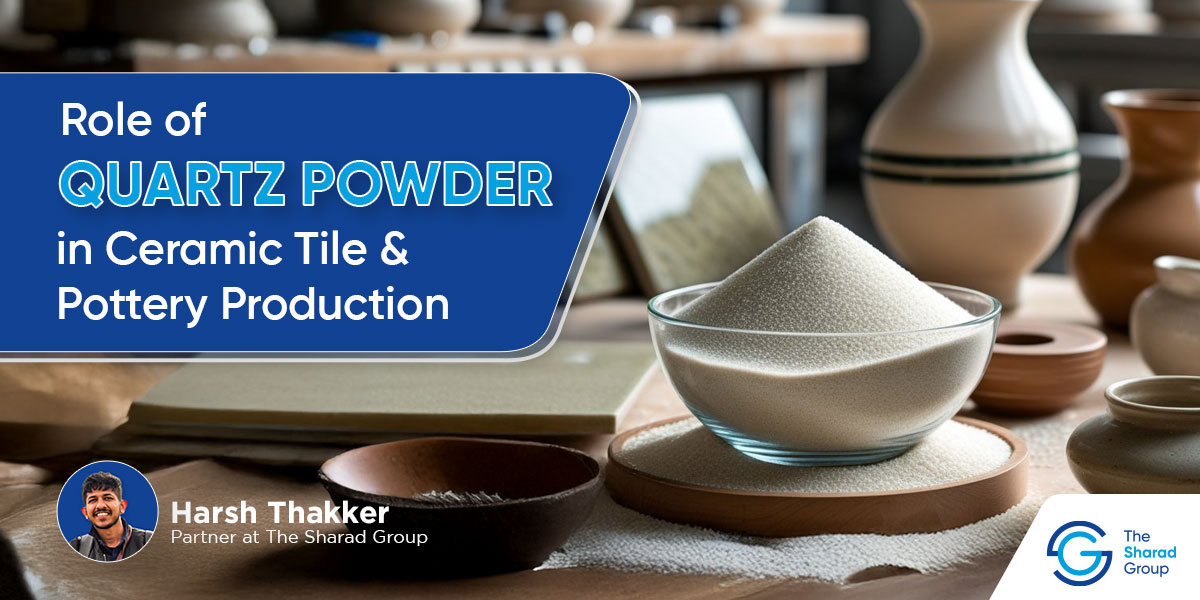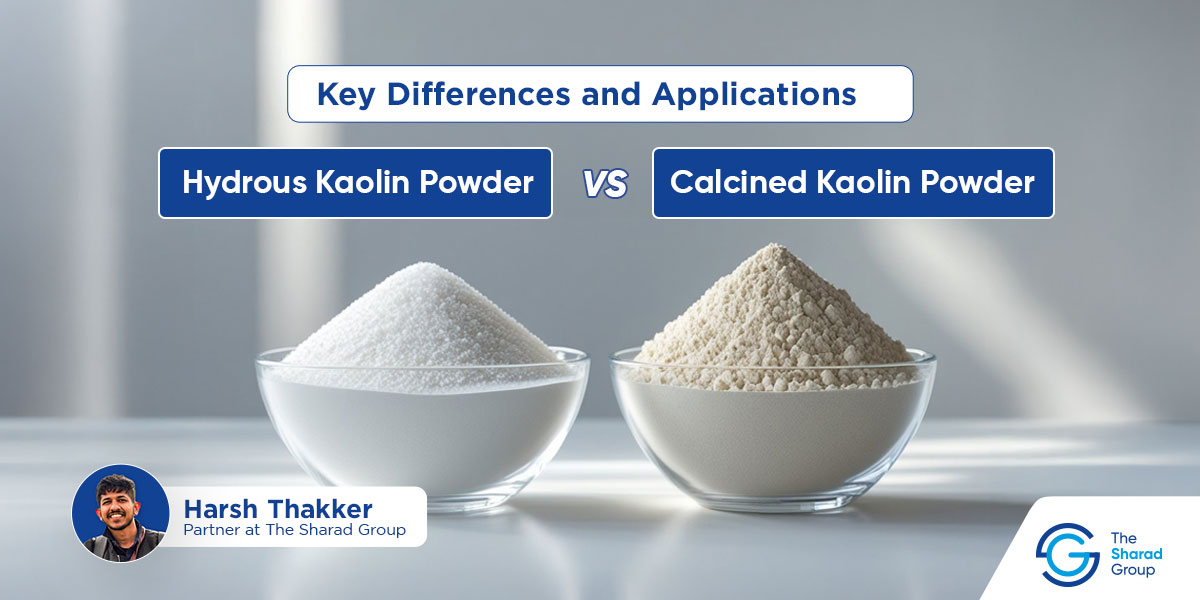Did you know that the ceramic tile you see, the bathroom sink you use, and the electrical insulator you install are all made of Ball Clay Powder?
It’s a clay that shapes, strengthens, and refines all these products, and their manufacturer relies on this mineral heavily.
And the reasons that make it reliable across industries are its:
- Fine texture
- High plasticity
- Strong bonding ability
Basically, it is used in all industries where precision and durability are required during both forming and firing.
In this blog, we’ll explore what ball clay powder is actually used for and what to consider when choosing a reliable supplier.
Your business may belong to one of the industries we’ll discuss here!
What is Ball Clay Powder used for? Table of Contents
- What is ball clay powder?
- Top 5 industrial uses of ball clay powder
- How to choose the right ball clay powder supplier?
- What is ball clay powder used for?: FAQs
What is Ball Clay Powder?
Ball clay powder is composed of minerals such as:
- Kaolinite
- Quartz
- Mica
They collectively contribute to its unique performance in product manufacturing.
The USP of ball clay powder is that:
- It can be easily shaped when wet
- When dry, it still retains its shape firmly
Therefore, it’s the most practical ingredient you can add to your product if you need flexibility and strength in it.
India is a leading source of ball clay, with major deposits located in Gujarat, Tamil Nadu, Andhra Pradesh, and Rajasthan.
And, these are the states where you’ll find some of the best ball clay manufacturers in India.
Also read: What is ball clay?
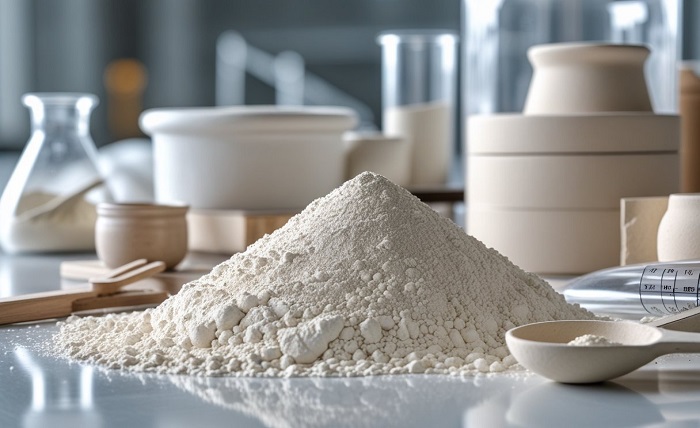
What's on this page:
ToggleWhat Makes Ball Clay Powder So Special?
Ball clay powder has several standout characteristics that make it unique. Let me break them down for you:
- High Plasticity: Can easily be molded into complex forms when wet.
- Fine Particle Size: Produces smooth textures and blends well with other raw materials.
- High Unfired Strength: Becomes a strong binder, holding the product’s body together before firing.
- Thermal Stability: Can withstand high firing temperatures and supports proper vitrification.
- Smooth Finish: Helps in achieving a refined and smooth surface on finished products.
Also Read: A complete guide to ball clay properties.
Top 5 Industrial Uses of Ball Clay Powder
Ball clay powder serves as a raw material for several sectors, and in this section, I will share with you the top five industries that rely heavily on it and explain why.
1. Ceramics Industry
The ceramics sector is, by far, the largest consumer of ball clay: approximately 59.7% of global ball clay is utilized solely in ceramic applications.
Here, it is used to produce ball clay ceramics, including tableware, floor tiles, decorative ceramics, and pottery. The reason for using it in this industry is due to its:
- Plasticity
- Fine particle size
- Binding power
Ceramics product manufacturers mix ball clay powder with other ingredients, as this mix ensures:
- Better moldability during shaping
- A retained shape before firing
- A smoother finish after firing
- Structural integrity throughout drying
2. Sanitaryware Manufacturing
Sanitaryware products demand perfection in their appearance, strength and finishing.
These products can be glossy toilet bowls or sleek washbasins. Basically, these sanitaryware products need to be:
- Molded into complex shapes
- Dried without cracking
- Fired at high temperatures without deformation
Ball clay fulfils all these criteria!
Plus, the low levels of iron and titanium in it result in a clean and white final product after firing. Both are a must in bathroom fixtures.
3. Construction and Building Materials
Ball clay does all the behind-the-scenes work at construction sites and in building materials manufacturing.
In tile manufacturing, for example, it makes the shaping process smoother due to naturally high plasticity.
Ball clay powder ensures two things for tiles used on busy floors or damp walls:
- During pressing, it forms clean and even shapes
- After firing, it adds strength and durability
You’ll also find it in certain types of mortar, cement, and even bricks, where it helps everything hold together.
Its binding ability improves how materials behave during application and boosts their overall lifespan once installed.
4. Electrical Porcelain and Insulators
Electrical products, such as spark plugs, fuse tubes, and high-voltage insulators, have to handle extreme temperatures and high voltages.
So, even the smallest flaw in any of these products can lead to failure.
These are the things they are expected to withstand:
- Electrical loads
- Thermal expansion
- Environmental stress.
Ball clay ensures that electrical components can perform at the highest levels even under these conditions:
- Its plastic nature ensures that ceramic parts can be molded to tight tolerances.
- Its fine particle distribution helps maintain dimensional stability throughout firing.
- It contributes to a dense microstructure in the final product, reducing porosity and boosting insulation strength.
These characteristics make it the preferred clay for companies manufacturing transmission line insulators, power equipment parts, and other electrical components.
5. Rubber and Plastics Industry
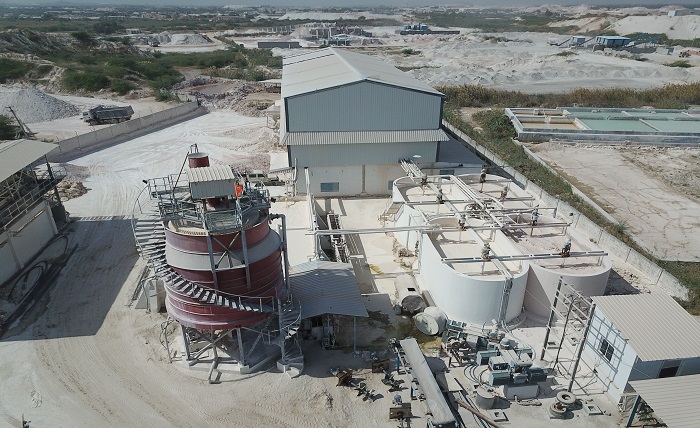
In rubber formulations, especially for industrial products such as belts, gaskets, and vibration mats, ball clay is added as a filler.
Its job?
- To improve tensile strength
- Boost abrasion resistance
- Help maintain uniform consistency
In plastics, it’s kind of the same story!
It is added to make things a bit tougher and less likely to warp when exposed to heat.
And because the particles are super fine, they mix in nicely with resins. That means easy molding and a smoother finish, without requiring many adjustments.
How to Choose the Right Ball Clay Powder Supplier?
No matter how good your process is, the outcome depends on the quality of the ball clay powder you are using.
Hence, you should get it from a reliable ball clay manufacturer who:
- Understands what you’re making
- Can match your specifications
- Keeps your production moving without supply chain delays
That’s where we can help!
For over three decades, The Sharad Group, a leading mineral mining company, has worked with businesses across various industries.
We know exactly what it takes to meet their demands without compromising timelines or budgets.
If you’re looking for guidance, samples, or a conversation about your requirements, why not connect with us?
We’ll help you acquire the right materials at the right time at the right price!
What is Ball Clay Powder Used For: FAQs
1. What is the difference between ball clay and kaolin clay?
The difference between ball clay and kaolin clay is that ball clay is more plastic, darker, and finer than kaolin. Plus, while ball clay is used for shaping and flexibility, kaolin provides whiteness, structure, and strength.
2. Is ball clay suitable for making floor or vitrified tiles?
Yes, ball clay is suitable for making floor or vitrified tiles as it enhances their:
- Plasticity
- Bonding
- Strength
- Glazing
3. Where is ball clay mined in India?
In India, ball clay is mainly mined in the following states:
- Gujarat
- Rajasthan
- Andhra Pradesh
4. What’s the shelf life or storage guideline for ball clay powder?
Ball clay has an indefinite shelf life if stored in a dry, moisture-free environment. It should be kept in sealed bags or bins, away from humidity, to preserve its workability and chemical consistency.

